Mubarak: A quiet release for a military strongman
- Published
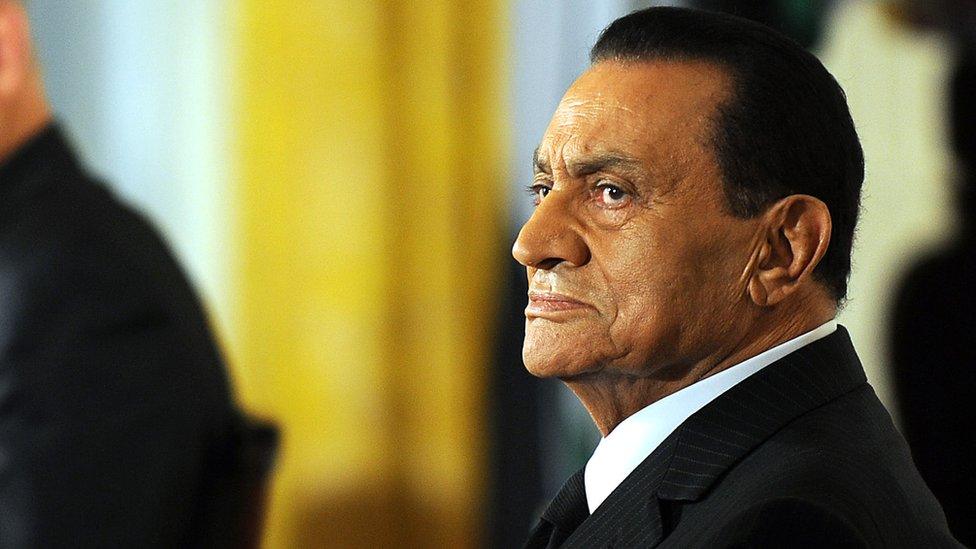
Once a political giant in the region, Mr Mubarak's release has been met with little fanfare
In 2011, millions of Egyptians took to the streets demanding the removal of their autocratic president of 30 years, Hosni Mubarak.
But six years after he stepped down, the public response to news that he has now been freed from detention has been remarkably quiet.
Earlier this month, a top appeals court cleared Mubarak of involvement in killing some of the 900 protesters who died during the country's uprising.
Egypt's prosecutor ruled there was no reason to hold him, as he had already served a three-year sentence for embezzling public funds.
After the first legal decision, the ex-president gave a rare telephone interview to an Egyptian journalist, who offered her congratulations.
He told her that, at the age of 88, he was "in good health" and would be "staying at home" in his family's property in Heliopolis, eastern Cairo.
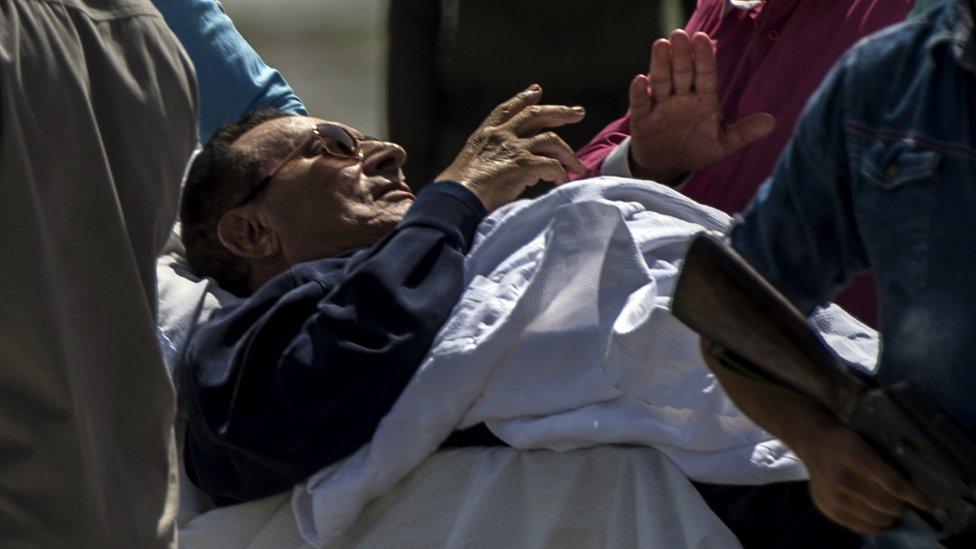
Mubarak suffered a wave of health issues during his trial and imprisonment
A former general, Mubarak was one of the Arab world's most well known leaders. A close ally of the United States, he long kept an iron grip on power, despite claims of corruption and cronyism.
Recently, as Egypt has gone through waves of political and economic upheaval, many have come to look back at the Mubarak era as a time of relative calm and prosperity.
Karim Hussein set up a Facebook page called "We're Sorry Mr President," which has more than 1.8m likes.
"It was my greatest wish in life to see President Mubarak finish with his legal case," says Mr Hussein, who visited the former leader in the military hospital where he spent most of his time in custody.
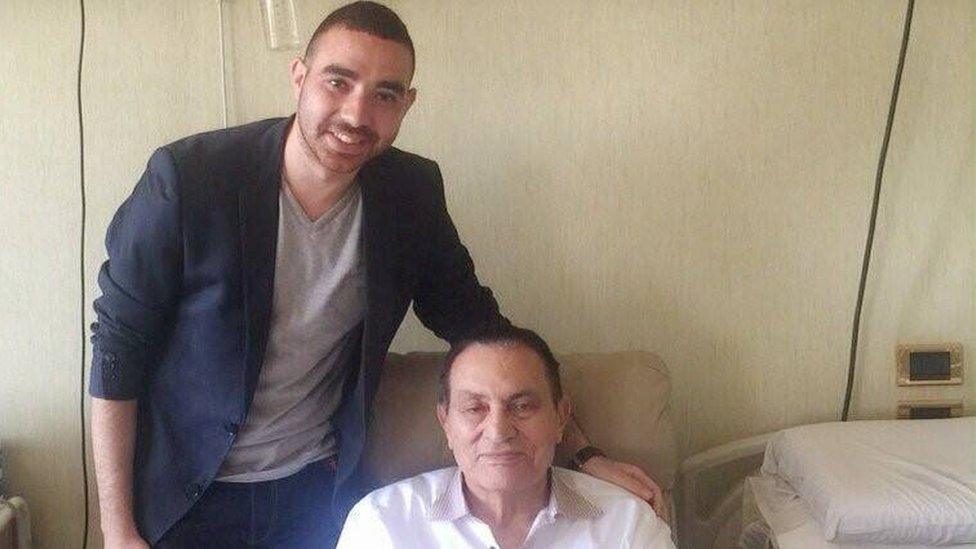
Karim is just one of the former president's many supporters
"I knew he was innocent from day one, because a man who once fought for the freedom of this country, would never kill its youth," he goes on.
"We won in the end. It's a great victory for a great man."
The first elected successor to President Mubarak was an Islamist, Mohammed Morsi, who was then overthrown in mass protests.
Seeking stability, Egyptians next voted in Abdul Fattah al-Sisi, another military strongman, who has led a crackdown on Islamists and pro-democracy activists.
Tens of thousands of people have been detained.
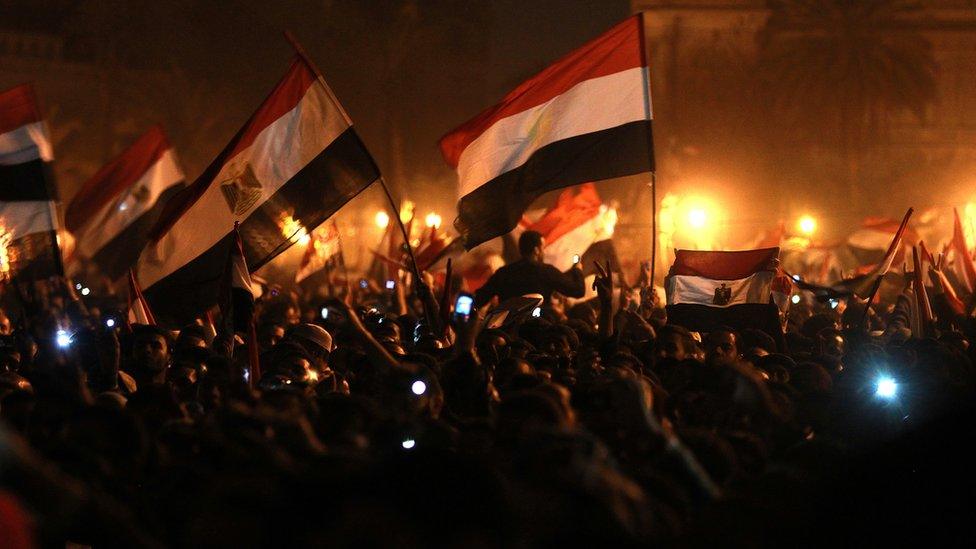
The celebrations when Mr Mubarak stepped down were optimistic
"I think we've gone a complete cycle around," says journalist, Shahira Amin, who rose to prominence when she resigned from state TV over its coverage of the 2011 uprising.
She has since been tried and acquitted of charges of posing a threat to national security.
Ms Amin is unsurprised by Mubarak's release or the muted reaction to it.
"Most Egyptians are just busy trying to make ends meet with the economic pressures: soaring prices, inflation, unemployment," Ms Amin says.
"The activists who started this revolution, many of them are behind bars. People have been silenced or intimidated and there are no more outspoken critics of the government. "
For those who made sacrifices in Tahrir Square, the crucible of Egypt's popular revolt, the fact that Mubarak is now free, while so many protesters remain in jail, is hard to bear.
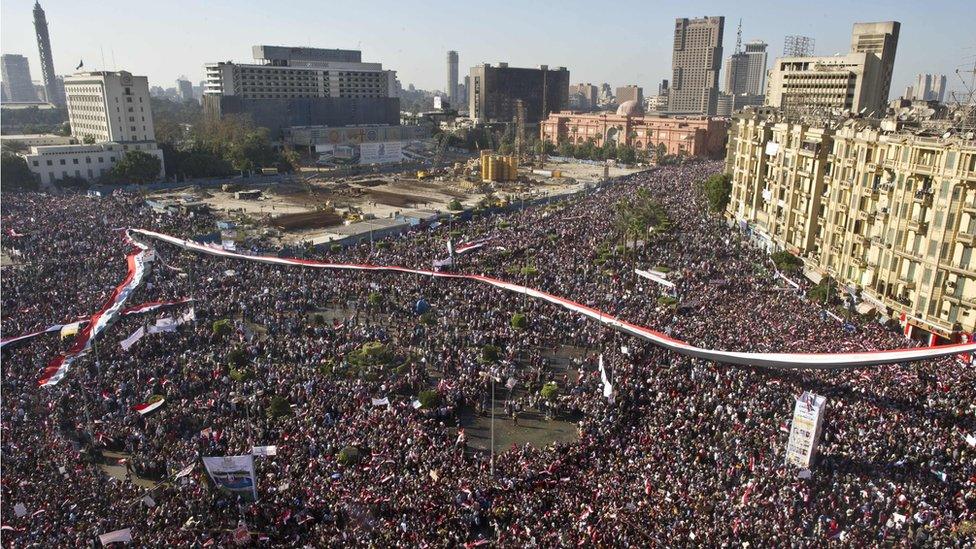
One week after Mubarak's departure, thousands of jubilant Egyptians returned to Tahrir Square, where the protests had taken place
It raises questions about whether any of their calls for reforms and freedom were ever really answered.
"His release is a sign of the corruption in the country," comments Randa Sami, who worked as a nurse at a field hospital in 2011.
She has life-long injuries and can only walk with crutches after police beat her.
"I put up a Facebook post saying: "Oh God where are my rights, the rights of those killed and injured?" Many people sympathised," she says.
However, she insists she has no regrets.
"It was worth it to go to the streets," she reflects. "Ok, Mubarak was not fully punished for his deeds but he was the first president to go to jail."
"At least we got him to go through this."
- Published24 March 2017
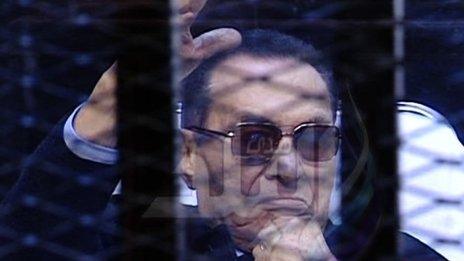
- Published25 January 2013
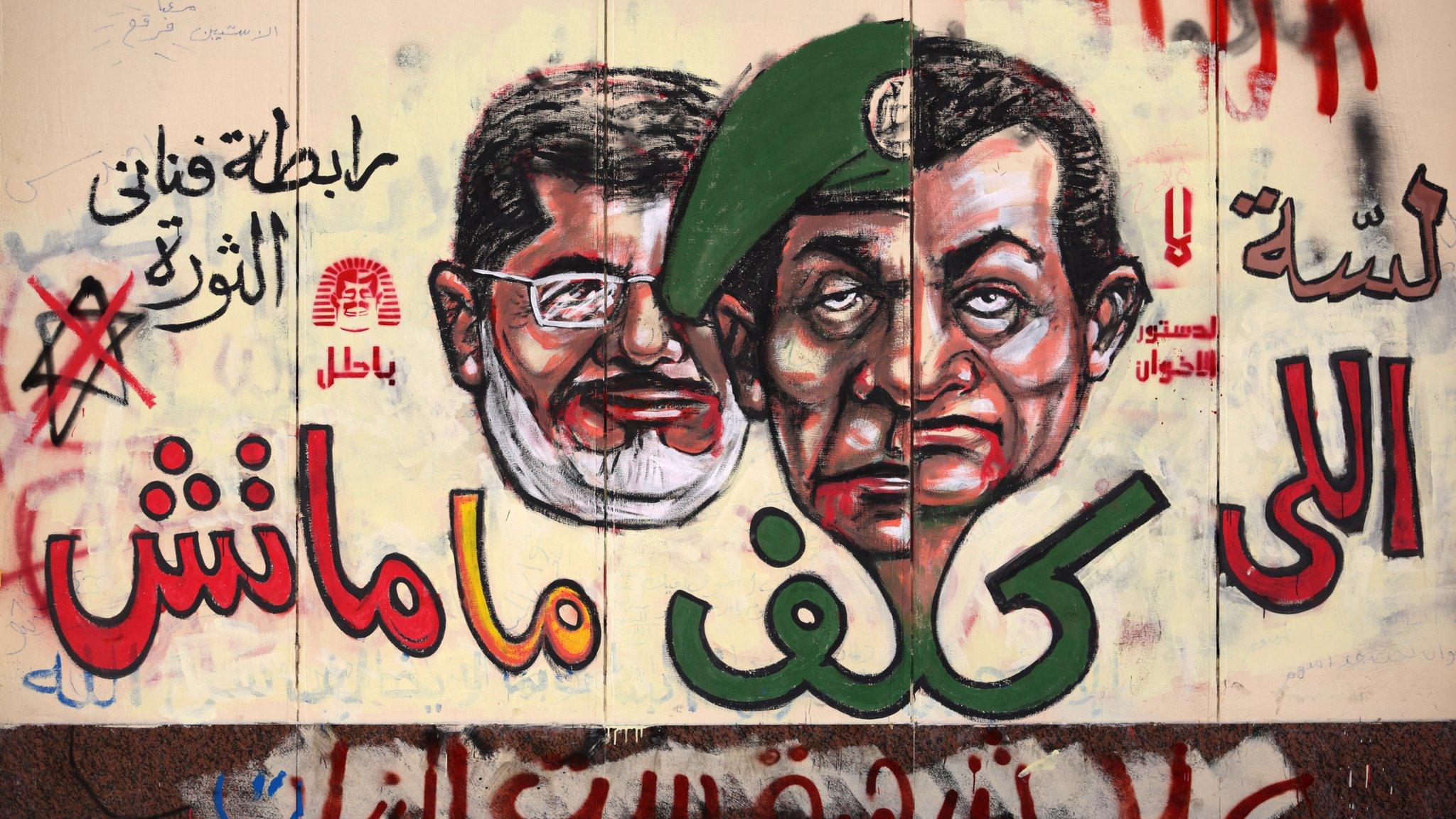
- Published9 May 2015
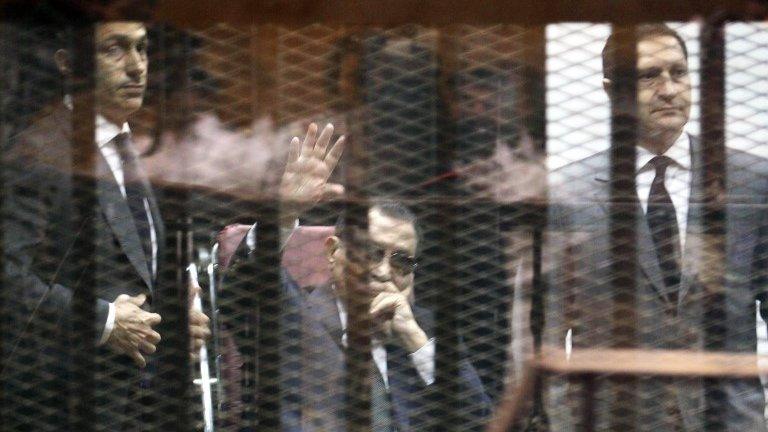
- Published2 March 2017
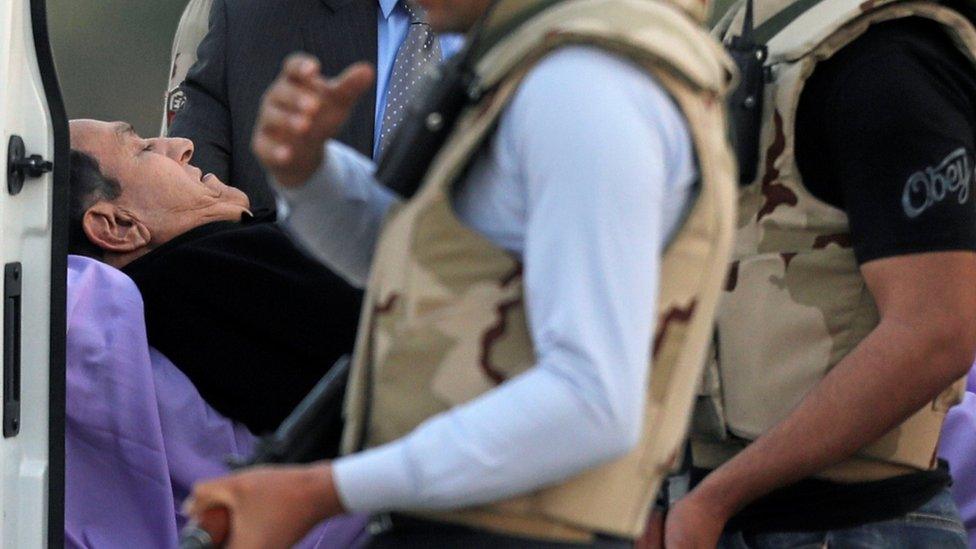
- Published12 October 2015
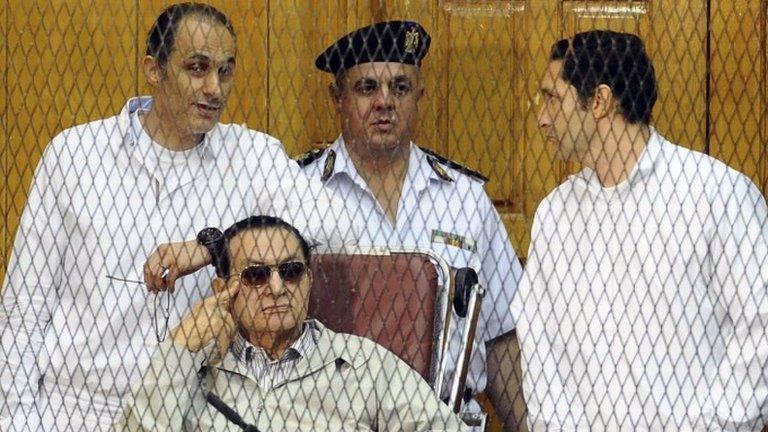
- Published13 January 2015
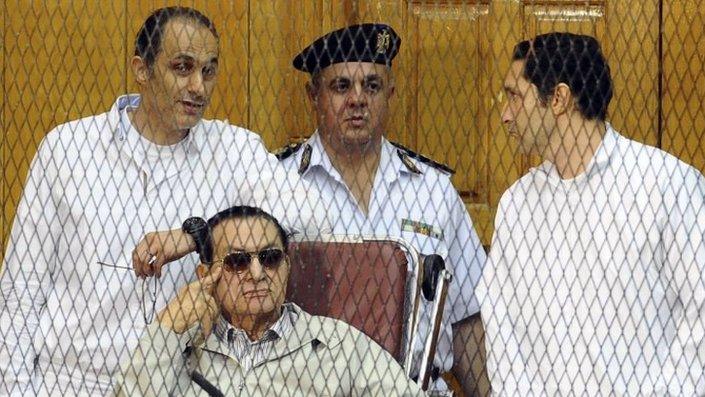
- Published12 February 2011
